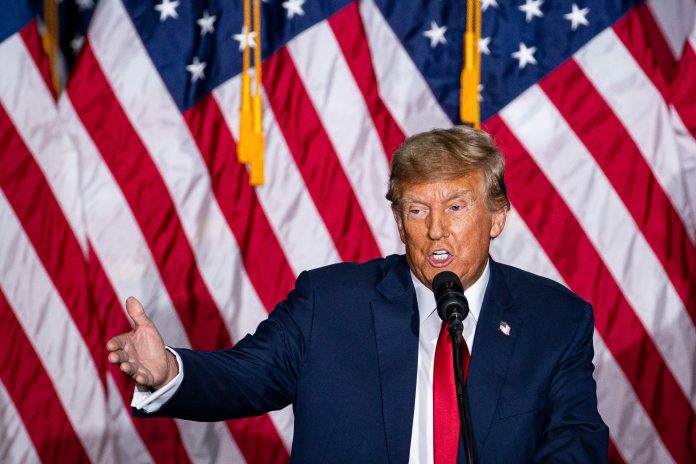Former US president Donald Trump is likely to consider a two-step plan to sharply increase duties on Chinese goods if he is elected president again in November, according to Nikkei Asia.
“I will implement a bold series of reforms to completely eliminate dependence on China in all critical areas.”
In early February, Trump stated that he was assessing duties of more than 60 per cent on Chinese goods. The duties are likely to target semiconductor devices and other electronics, steel and pharmaceuticals – products whose imports from China Trump intends to gradually phase out to zero over four years.
Clete Willems, a partner at Akin Gump who served as deputy assistant to the president for international economic affairs in the Trump administration, stated:
What they could do is just be more strategic in the way that they deploy Section 301, and increase tariffs on strategic goods, without increasing tariffs on nonstrategic items.
Afterwards, Trump plans to revoke China’s most-favoured-nation trading status, adopted by the US in 2000 by a special law under which Washington gives Beijing the same trade advantages as other trading partners under World Trade Organisation rules.
According to Willems, cancelling the status would increase duties on toys, for example, to 70 per cent, while semiconductors would remain untouched. However, subsequent tariff increases on a wide range of everyday goods could have a greater impact on the economy.
Trump also proposed “universal baseline tariffs” on most foreign goods, mentioning 10 per cent as a possible rate last summer.
At the same time, some US observers argue that the executive branch does not have the authority to impose general duties on imports from the rest of the world. Therefore, Trump could threaten to raise tariffs that are within his authority until a law is passed, as in the case of China’s tariffs.
The Trump administration has previously leveraged the threat of additional duties of up to 25 per cent on auto imports to force Japan and other countries to the negotiating table. The former president would also pressure other countries to reduce their tariffs and open their markets to US exports.
He called on Congress to pass legislation allowing the US to raise its tariffs on certain goods in order to match the higher tariffs imposed by a trading partner.
“Under the Trump Reciprocal Trade Act, other countries will have two choices: They will get rid of their tariffs on us, or they will pay us hundreds of billions of dollars, and the United States will make an absolute fortune.”
The former president stated that if tariffs were raised, the costs should be borne by the exporter. He is also considering punitive trade measures against the European Union if he is elected, according to Bloomberg.
